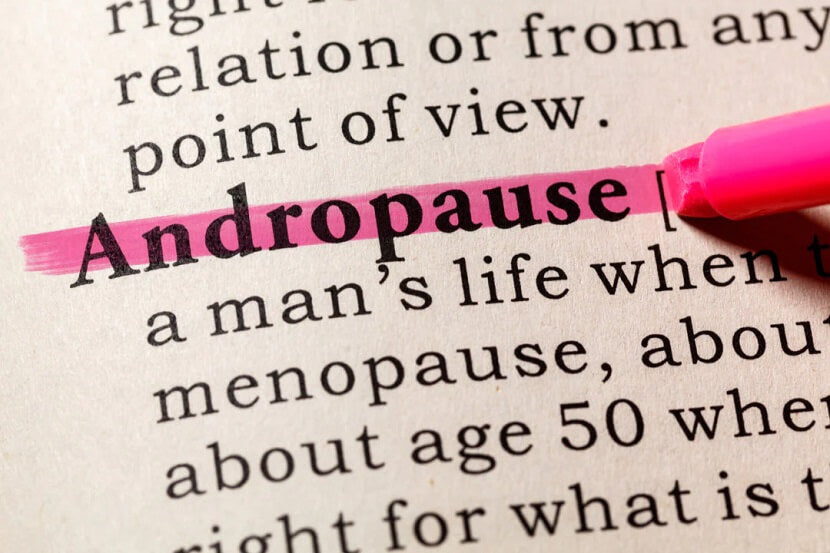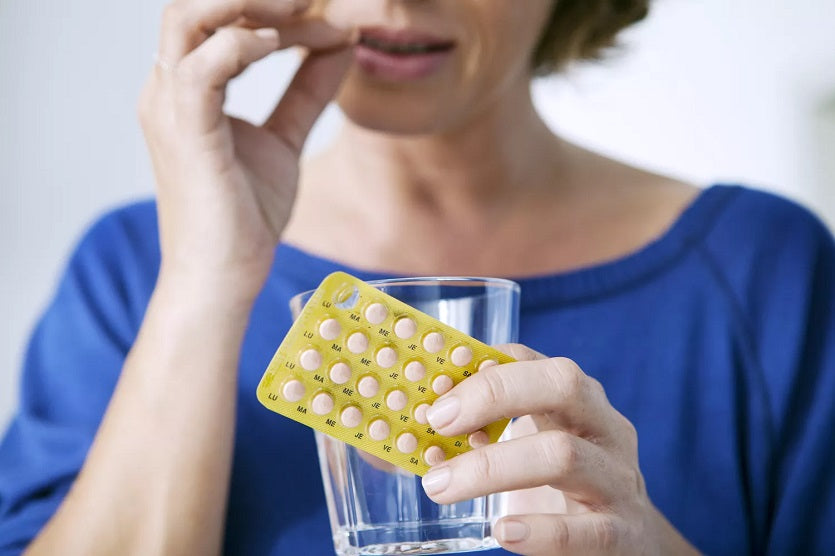As men struggle to understand women’s hormonal changes, so must women regarding men’s health—specifically Andropause. Women often shrug it off as their partners, parents, and work colleagues turn into grumpy old men, becoming moody, distant, and dismissive. The reality is many men themselves do not understand this phase of life. Often, it is a slow and steady decline, rather than the often acute and dramatic changes women can experience with their hormonal imbalances.
Men tend to turn inwards, suppress their feelings, and dismiss any inferences that something may be wrong. As a result, they become increasingly moody, fatigued, and lethargic. Sleep flies out the window, performance in the bedroom diminishes, and both males and females wonder where the old self has disappeared.
Understanding the challenges men face, specifically towards the process of Andropause, is essential. This article explores what Andropause is, its impact on men's hormonal health and testosterone levels, and interventions to support the men in your life with the proper diet, lifestyle, and natural medicines.
Understanding Andropause and Its Significance
in Men's Hormonal Health
Andropause, often termed "male menopause," represents a natural transition in a man's life characterized by a gradual decline in testosterone levels. This phase typically occurs between the ages of 40 and 65 and plays a vital role in men's hormonal health, affecting mood, energy, muscle mass, and libido. It is not a matter of if, but when and how quickly men will go through this process.
The good news is the process of andropause is directly linked to how a man takes care of his health or lack thereof. We will outline strategies later in the article on how to slow and turn back the clock.

The Effects of Andropause on
Men's Hormonal Health
Mood and Emotional Changes: Men experiencing Andropause may encounter mood swings, irritability, and emotional sensitivity, akin to the emotional fluctuations seen in women during menopause.
Fatigue and Energy Levels: A prevalent symptom of Andropause is persistent fatigue and low energy levels, even after sufficient rest, which can lead to a feeling of diminished vitality.
Libido and Sexual Health: Andropause can lead to a reduced sex drive due to variations in testosterone levels, impacting intimacy within a relationship.
Physical Changes: Men may notice body alterations, including weight gain, decreased muscle mass, and increased body fat. These changes can affect self-esteem.
Sleep Disturbances: Sleep issues like insomnia or frequent awakenings during the night can worsen fatigue and irritability, further influencing men's hormonal health.
Supporting Your Partner Through Andropause and Men's Hormonal Health
Facilitate Open Communication: Encourage open and honest communication with your partner to express feelings and concerns, creating a supportive environment.
Education: Learn about Andropause and men's hormonal health to approach the situation with empathy and awareness.
Professional Guidance: Seek professional help if symptoms become overwhelming, as many interventions may be beneficial for managing Andropause.
Healthy Lifestyle Choices: Promote a healthy lifestyle, including regular exercise, a balanced diet, and stress management, to alleviate Andropause symptoms.
Patience and Support: Understand that Andropause is a natural aspect of aging and a temporary phase. Be patient and supportive during your partner's adjustment.

Diet and Nutrition
Balanced Diet: Encourage a balanced diet rich in whole foods. Emphasize fruits, vegetables, lean proteins, whole grains, and healthy fats. These provide essential nutrients for overall health.
Protein Intake: Promote an adequate intake of protein, as it supports muscle health and can help combat age-related muscle loss. Lean meats, fish, tofu, and legumes are excellent sources.
Healthy Fats: Incorporate sources of healthy fats like avocados, nuts, seeds, and olive oil. These fats play a role in hormone production.
Zinc-rich foods: Include foods high in zinc, such as oysters, lean meats, nuts, and seeds, as zinc is crucial for testosterone production.
Pomegranate and Antioxidants: Encourage foods rich in antioxidants, like pomegranates, berries, and leafy greens. Antioxidants combat oxidative stress and support overall health.
Limit Sugar and Processed Foods: Minimize sugary and highly processed foods, as excessive sugar intake can negatively impact insulin sensitivity and hormonal balance.
Hydration: Encourage proper hydration by drinking adequate water throughout the day. Dehydration can affect energy levels and overall health.
Limit Alcohol and Caffeine: Alcohol is one of the primary accelerators of andropause. Apart from directly lowering testosterone levels, alcohol disrupts sleep quality and leads to mood depression. Encourage moderation. Any more than two standard drinks will destroy sleep quality.

Lifestyle Recommendations
Regular Exercise: Exercise is critical. Physical activity releases endorphins, which are natural mood lifters. Regular exercise is an excellent stress reducer. Testosterone, mainly, is a use-it-or-lose-it hormone. Men become increasingly less active as they age, especially if they have an office or sedentary job. Promote regular physical activity, including both cardiovascular exercise and strength training. Exercise helps maintain muscle mass, boost mood, and support overall health.
Stress Management: Stress can exacerbate Andropause symptoms. Men at this time are often in senior roles with many responsibilities. This can slowly erode a man’s nervous system, affecting sleep and mood. Encourage stress management techniques like yoga, meditation, deep breathing exercises, or hobbies that provide relaxation.
Adequate Sleep: Quality sleep is essential for hormone regulation and overall well-being. Sleep is a core pillar of well-being, with every aspect of health affected by lack or quality of sleep. Aim for 7-9 hours of restful sleep per night. Establish a bedtime routine and create a comfortable sleep environment.
Social Connections: Maintain solid social connections and encourage activities that promote social engagement. Positive social interactions can contribute to emotional well-being.
Stress Management: Men tend to be dismissive of stress; however, it is so critical first to understand the impacts of stress on hormone levels, and how to prioritise stress management as a critical element in managing andropause.
Mindfulness Meditation: Encourage mindfulness meditation as it helps reduce stress, improve focus, and enhance emotional well-being.
Relaxation Techniques: Explore relaxation techniques such as progressive muscle relaxation, deep breathing exercises, or guided imagery to alleviate stress.
Time Management: Assist your partner in managing time effectively. Prioritizing tasks and setting realistic goals can reduce stress related to daily responsibilities.

Sleep Strategies
Establish a Routine: Encourage a consistent sleep schedule by going to bed and waking up at the exact times each day, even on weekends.
Create a Comfortable Sleep Environment: Ensure the bedroom is conducive to sleep. A comfortable mattress, adequate room temperature, and minimal light and noise can improve sleep quality.
Limit Screen Time: Avoid screens (phones, tablets, computers) at least an hour before bedtime, as the blue light emitted can disrupt sleep patterns.
Limit Stimulants: Avoid caffeine and large meals close to bedtime, as they can interfere with sleep.
Relaxation Techniques: Encourage relaxation techniques, such as a warm bath, soothing music, or reading a book, to signal the body that it's time to wind down.
Natural Remedies: Diet and lifestyle often are not enough to recover a man’s vitality. This is where certain natural medicines can really assist in accelerating his return to well-being.
Consider natural remedies that may support men's hormonal health during Andropause. Some of these include:
- Shilajit: Known for its potential to enhance vitality and energy levels.
- Saw Palmetto: May support prostate health and hormonal balance.
- Zinc: Essential for testosterone production and overall health.
- Tongkat Ali: Thought to boost testosterone levels and improve mood.
- Equisetum (Horsetail): Contains nutrients that can support bone health.
- Pomegranate Extract: Known for its antioxidant properties and potential to support cardiovascular health.
- Medicinal Mushrooms: Varieties like Reishi, Lion's mane, and Cordyceps may have adaptogenic properties that help combat stress and improve mental focus.
- Magnesium: Magnesium is a common deficiency at this time of life, and restoring levels can improve sleep, reduce aches and pains, lower the risk of dementia, and improve cardiovascular health.
Check out my other article for helpful tips to improve sleep and hormonal health.
Closing Thoughts
Remember, everyone's experience with Andropause is unique, and what works best may vary from person to person. By incorporating these diet, lifestyle, stress management, and sleep strategies, men can better manage Andropause symptoms and support their hormonal health during this transitional phase.
Men's health, including hormonal health and testosterone levels, is a crucial component of overall well-being. Andropause is a phase that deserves attention and support. By understanding the physical and emotional changes associated with Andropause and exploring natural remedies, couples can navigate this phase with greater ease and emerge with a stronger and healthier partnership. Remember that Andropause is a natural part of aging, and with the right strategies and support, men can maintain their well-being and vitality during this transitional period.









Leave a comment
This site is protected by hCaptcha and the hCaptcha Privacy Policy and Terms of Service apply.